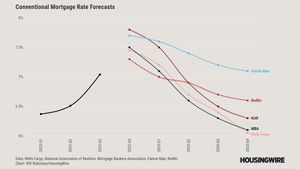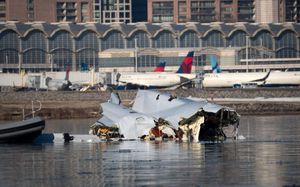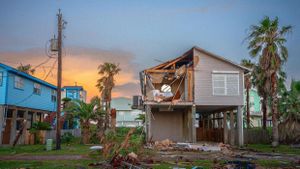Belgium has officially formed a new government following almost eight months of complex negotiations, marking the end of a tumultuous period for the country. The coalition, headed by Bart De Wever, the leader of the New Flemish Alliance (N-VA), includes four other political parties: the Francophone Reformist Movement (MR), the centrist Les Engagés, the Christian Democrats (CD&V), and the social-democratic Vooruit party. The announcement came from the office of King Philippe, highlighting the urgency and significance of the agreement.
De Wever, 54, is expected to assume the role of Prime Minister and lead this broad coalition aimed at addressing several pressing issues facing the country. The prolonged negotiations stemmed from the 2024 elections, which saw the N-VA emerge victorious but without a clear governing majority. Complicated by differing political ideologies and policy platforms, the talks sputtered for months as parties struggled to agree on budget cuts, tax hikes, and pension reforms necessary for improving the finances of Belgium, the eurozone’s sixth-largest economy.
During the final stretch of negotiations, which stretched nearly 32 hours, the coalition parties reached consensus on several sticking points. Notably, they agreed on increasing defense spending to align with NATO’s requirement of spending at least 2 percent of Gross Domestic Product (GDP) and limiting asylum migration, issues of considerable importance to the coalition members.
Upon finalizing the agreement, De Wever presented the coalition pact to King Philippe but did not provide details to the waiting press outside the Royal Palace in Brussels. Reflecting on the moment, he stated, "The die is cast," signaling the coalition's readiness to govern and the significant steps taken to form what is frequently described as the ‘Arizona coalition’ due to its eclectic mix of parties.
One of the most contentious aspects of this coalition is the exclusion of the far-right Vlaams Belang party, which, having made significant electoral gains, has become the country’s second-largest political entity. Despite their growth, political parties across Belgium have consistently refrained from including Vlaams Belang due to its anti-immigrant and anti-European Union rhetoric and goals to split the country. This longstanding ostracism reflects Belgium’s complicated political and cultural dynamics, particularly relating to its dual language communities, which include French-speaking Wallonia and Dutch-speaking Flanders.
Bart De Wever, who has previously voiced strong separatist sentiments, famously declaring, "Belgium has no future," now assumes leadership as prime minister of the entire nation. The historical shift marks the first time Belgium will be led by someone openly skeptical of its very existence. This duality raises questions about how De Wever will manage relationships with the French-speaking population and address the increasingly polarized political climate.
The negotiations leading to this government formation were characterized by their urgency, especially after King Philippe issued a deadline for the parties to reach an agreement. The looming prospect of new elections served as a catalyst for the completion of negotiations, illustrating the high stakes involved for all parties and their electoral futures.
Belgium's political history is riddled with similar instances of drawn-out negotiations, making the eight-month period seem relatively standard for the country, which holds records for lengthy spells without government. Nonetheless, the political atmosphere has evolved, with rising sentiments of nationalism and increasing divisions between Flanders and Wallonia complicate the governance process.
Underlying economic issues also fuel the tensions between the two communities; for years, wealth distribution has significantly favored Flanders—where unemployment remains around 3 percent—over Wallonia, with unemployment hovering near 9 percent. This economic disparity has led to frustrations within Flanders as they perceive their contributions to the national treasury as being disproportionately allocated to support Walloon communities.
Moving forward, the new coalition is expected to address these fiscal challenges with proposed reforms. How this government functions, particularly under the direction of someone with De Wever’s past statements, will be closely observed, especially with tensions still palpable between the linguistic communities. The stability of the new government also hinges on how well the diverse ideological spectrum of the coalition manages to cooperate and address both internal and external political pressures.
The formation of this government is, undoubtedly, a complex chess game. Potential pitfalls lie down various paths, but as historian Jon Snow noted during his coverage of Belgium’s prior governmental struggles, the true test will come with whether this coalition can govern effectively without falling back on age-old divisions.
While the road forward may be fraught with challenges, the new coalition reflects Belgium's continuing effort to navigate its multifaceted identity and maintain its governmental integrity, even when led by figures who have openly questioned the nation’s future. This scenario will serve not only as a focal point for Belgian politics but also as indicative of broader trends at play across Europe, where rising nationalism and the challenges of immigration continue to reshape political landscapes.



